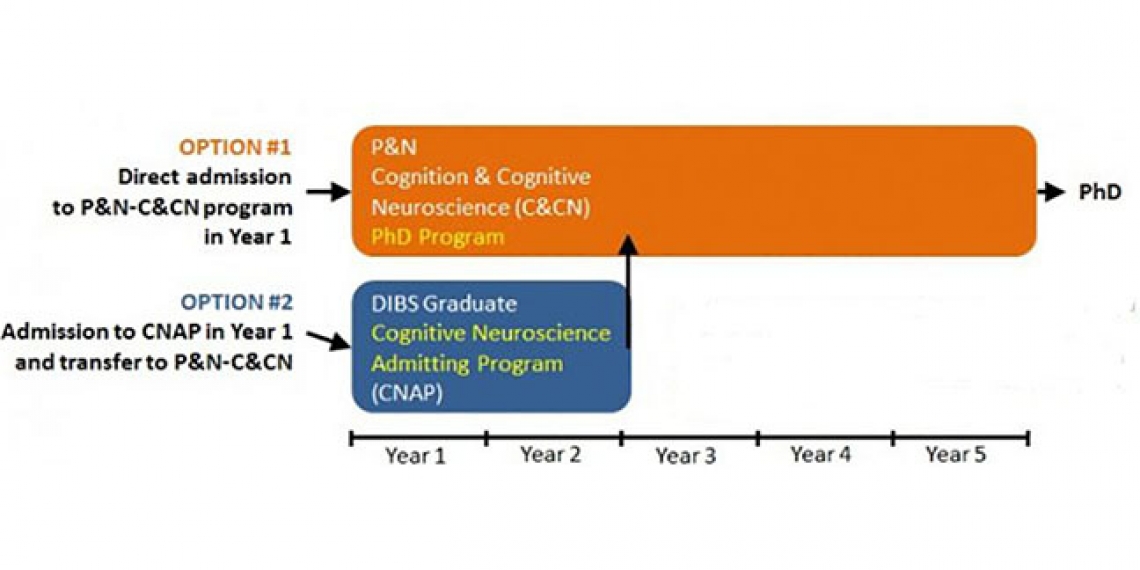Members of the Cognition & the Brain (CB) training areas use behavioral, computational and neural methods to investigate human cognition, including attention, memory, training and learning, emotion, reward, and decision making.
Neural Methods Include:
- Event-related potentials (ERPs),
- Peripheral psychophysiology (e.g., galvanic skin response),
- Volumetric MRI
- Diffusion tensor imaging (DTI)
- Functional MRI (fMRI)
- Transcranial magnetic stimulation (TMS)
Additional Information
NOTE: Our program has made the GRE General Test optional for admission to the fall 2026 class. You may submit scores if you have them, and they will be considered by the admissions committee. Applications without GRE scores will be given equal consideration.
Faculty from other areas of P&N or other departments may be involved in some way in graduate student training.
A list of faculty who are recruiting for Fall 2026 can be found on the Prospective Students page.
In addition to the Departmental requirements, students in the Cognition & the Brain (CB) area are required to complete the following:
Practicum
Students should complete two research practica in different labs during their first year in the program. These practica can be method- or content-based and students may continue to work in their primary lab while conducting a practicum in a different lab.
Courses
Students must complete the following required courses:
- Principles of Cognitive Neuroscience I (PSY 759S)
- Foundations of Cognitive Psychology (PSY 730S)
(One of these may be substituted with a similar course, if approved by the student's advisor and the Training Area Head)
1 Research Method or Statistics course. Sample courses include:
- Functional Magnetic Resonance Imaging (PSY 762)
- Graduate Statistics (PSY 766)
- Applied correlation and regression (PSY 767)
- Applied structural equation modeling (PSY 768)
Additional Requirements
- Students are expected to attend talks relevant to the CB training area, to attend P&N departmental colloquia, and to participate in the other events of our training area.
- Students must give talks on their research in Year 3 and Year 5
Typical plan of coursework for completing the P&N and CB requirements:
| Fall | Spring | |
| Year 1 |
|
|
| Year 2 |
|
|
| Year 3 |
|
|
| Year 4 |
|
|
| Year 5 |
|
NOTE: Our program has made the GRE General Test optional for admission to the fall 2024 class. You may submit scores if you have them, and they will be considered by the admissions committee. Applications without GRE scores will be given equal consideration.
There are two ways to receive training in cognitive neuroscience at Duke. A student can be directly admitted to P&N, to work with a specific mentor (1st option depicted in the figure above). A student can also be admitted to the Cognitive Neuroscience Admitting program, which does not immediately match students to a particular lab. Instead, students rotate through several labs before matching with a mentor in their second year and transferring to a departmental Ph.D. program at the beginning of the third year. Admission to a departmental Ph.D. program is not automatic; it requires a mutual match with a Ph.D. supervisor.
If you are interested in option 2, please read more about the CNAP program on the Duke Institute for Brain Sciences website.


